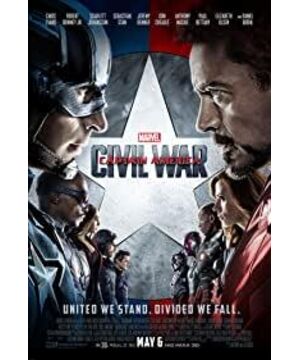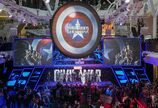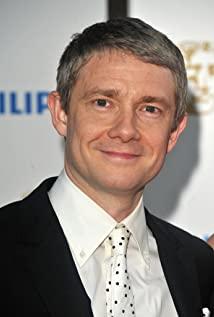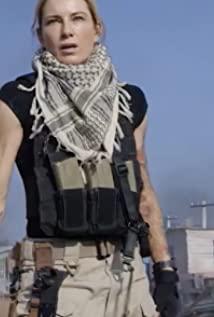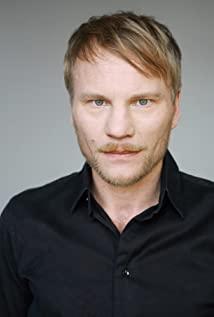Let's go back to the beginning of everything in Captain America: Civil War story, the Sokovia Accords.
General Ross, on behalf of the UN, asked the Avengers to sign the agreement, and stated that "then act under the command of the UN-led group [when and only if]", completely abandoning choice and responsibility.
Iron Man will support such an agreement. Personally, it seems that it is just a means of dispelling guilt and wanting to save Little Pepper, and it is a means of going to the doctor in a hurry, without considering the feasibility and rationality of the agreement at all.
First, the agreement itself does nothing to prevent tragedy, and it is never the wicked destroyer who is bound.
As a direct fuse, the tragic root of lagos is the villain's malice for the world. team leader? He had tried his best, and was almost killed by the wishbone's self-destruction. witch? If she didn't fling her wishbone into the air, she would only cause a wider range of civilian casualties on the ground.
Yes, Captain and the Witch take the blame on themselves, but only because they are who they are.
"Sometimes, you can't save everyone. But if you hesitate about it, next time you may not be able to save anyone."
The captain said so, and the witch also chose to "overcome her inner fear". If not, the world will really become what Hydra says: "For fear, sacrifice freedom (Captain 2)".
Assuming that the lagos incident happened after the agreement was signed and the UN decided not to send the Avengers to deal with it, looking at the amazing fighting power of Wishbone, as well as equipment such as mortars, biochemical weapons, self-destructing vests, etc., the loss will only be more severe.
So the Avengers who signed the agreement really had to choose to sit back and watch?
Another possibility, if the UN sends other Avengers to fight, can it really guarantee that no casualties will be caused in the market with large population density?
On the other hand, the core problem of the agreement is that [there is no power required to restrain Chaoying at all, and the formation of constraints depends entirely on Chaoying's own self-discipline]
If you can't find the Hulk Thor at the beginning, doesn't it mean that the supervision is ineffective at all? If Vision or Wanda really want to do something who has the power to stop it? Iron Man himself did not have any approval to participate in the last action to stop Zemo, which simply means that once the self-discipline agreement is abandoned, it is not binding.
As for the captain, after watching the in-depth penetration of SHIELD and ZF by the US team 2 Hydra,
you say that he may give the right to decide his actions to the writing ZF read as Hydra?
Once the pen is written, it means giving up the choice and avoiding the responsibility, and the power is no longer in the safest hands.
you mean the United Nations? The UN infiltrated by Hydra? Decision makers who developed the Insights program to take millions of lives? (Captain 2) The decision maker who threw a nuclear bomb on New York? (Avengers 1, whoever made that decision remained in high positions even after that) Or the decision maker who ordered the direct kill of the Winter Soldier? (Cap 3)
"What if they don't order us when they need us, but instead order us to do something against our heart?"
In fact, this situation happened very quickly: when zemo ran to Siberia brought huge When threatened, General Ross chose to turn a blind eye.
Signing the agreement requires a lot of hard work. Judging from the complete invalidity of sending Zemo's truth to Ross, is the agreement really just a delay? Iron Man, who was confident that everything could be remedied by an after-action motion, leaned on the pillar and said sarcastically, "I can't let him know, or I'll have to arrest myself."
This is the beginning of the disagreement between the two sides, the only Iron Man faction I can understand comes from Vision, "Unchecked power is dangerous". However, this is an ideal state. As mentioned earlier, there is simply no force enough to restrain, and the will to restrain is completely useless.
Everyone has their own personal factors, the captain's side Ant-Man (his choice is to disregard ZF's disapproval, give priority to chasing down the threatening Zemo, and his actions are completely in line with the captain's point of view), Winter Soldier, Falcon Especially strong, but except for the little spider and the witch, I personally think that everyone else has their own more in-depth thinking about the protocol.
In fact, only Roddy agrees with the statement that the agreement "gives up choice and responsibility". Roddy, a soldier who honors obedience as a vocation medal.
Airport
Captain: He was framed, listen to me, and now the mastermind behind the scenes is about to release a few more Winter Soldiers, which is very dangerous...
Iron Man: Don't listen, hand over Barnes.
It 's a race against time to
chase Zemo, and every second is too late to be dangerous. You have to stop me, of course you have to break through the barrier!
The Avengers bought a lot of time for Zemo's layout in the first battle at the airport, and the power to stop Zemo was sharply reduced from 6 people to 2 people - what the widow sister said is absolutely right, the airport battle was played by Zemo and applauded. It was them who did the wrong thing.
Zemo did not use the five human weapons for evil, and from the audience's perspective of God, it was a fortune among misfortunes. This is a villain with clear goals and meticulous logic, with pursuits, very pursuits.
The films of the latter stage have little to do with the agreement itself. It's more like the characters are fighting for their own personal reasons. Then, after reviewing the movie with passers-by and friends several times, let's take a look at the "private reasons" presented by the director from the narrative technique and perspective.
First of all, let's look at the literary and drama part of Iron Man. There are a lot of ups and downs, so we will see young Nini's affectionate memories of her parents full of pain and regret at the beginning of the film. This scene lays the groundwork for the final battle: It is easy for the audience to resonate with the feelings of Iron Man in a war, and even the photography is deliberately guided (analyzing the picture of the captain fighting—Iron Man’s perspective, watching the captain abandoning his shield and walking away—Iron Man’s perspective), this kind of full foreshadowing + perspective The identification of passers-by brought about by emotional substitution can be said to be strong...
However, on the captain's side, the emotional role of the most core character is actually relatively weak.
As a Marvel nc fan, it is easy for me to understand the past, but what do passers-by see
Passerby A: Who is the dead beauty (Peggy)? Why is the captain sad?
Passerby B: I hugged this (widow sister) just now, and now kiss this (13), what's the trouble?
Passerby C: Didn't he come to catch him (Bucky)? Why did you believe him when he said he didn't kill anyone?
Iron Man's emotional changes are logically continuous, and the picture is intuitive and has enough time to support; on the other hand, Captain, the emotional description is logically fragmented and has no antecedents and consequences, and the picture is completely absent, only indirectly with lines.
You see, this is the lack of pseudo-emotional motivation brought about by lack of foreshadowing. Yes, maybe the captain mentioned something like "When he mentions Bucky, I'm a 16-year-old kid in Brooklyn", but there's not even a single image. Maybe the captain mentioned "It's good to have Peggy in this era", but there is still no image. The impact of the lines is far less intense than that of the images, and many passers-by who have not seen the previous work will not pay attention to the words that are quickly finished.
On the contrary, in order to highlight the tragic death of his parents and make the subsequent rampage of Iron Man more logical, the Winter Soldier slammed Howard's head with an iron arm and used a close-up shooting method. If it is surveillance video, it is impossible to take pictures of this distance, height, and angle, and it is quite hard to pursue intuitive visual stimulation.
This significant inequality in emotional substitution masks a factual logical flaw. For example, Iron Man recruited people to comply with the agreement and the Avengers Civil War (recruited high school students who lacked superpower combat experience and training, and did not inform about the dangers of combat at all (regardless of whether there was intentional harm, Roddy was also an accident) ), just come up with cool gear and stress the other side is wrong). On the other hand, the captain recruited to go after Zemo in Russia to solve the imminent threat he brought, and clearly informed the participants of the possible adverse consequences in advance.
Then again, thankfully Zemo is focused on pursuing a split within the Avengers. Otherwise, in the airport battle, the Iron Man faction under the agreement has already made a big mistake.
On the other hand, the captain's role is insufficient, and it is shown in Bucky. The Winter Soldier is a special identity of the victim and perpetrator. If such a character's inner expression is a little more direct and full, it will be more convincing to the audience that the captain should protect his position no matter what. Similarly, the two lines of "I did it anyway" and "I remember everyone" are slightly thin.
In fact, it's probably not the director's fault. In the feature film, Bucky had to take the schoolbag with him even if he was on the run. In total, he took it out from the floor and threw it downstairs to pick up two close-ups. And the actor revealed that Bucky's memory fragment was in the schoolbag. He wrote down every fragment that could be grasped - the name of every victim, and took it with him... This shocking everything, and the trailer stood in Siberia Like the Winter Soldier in the cold wind, it has become an unsolved mystery in the feature film.
In fact, looking back on the interview with the Russo brothers, they had other plans for the third Captain America movie from the beginning. Due to the existence of Warner's Batman vs Superman, the captain's personal movie turned into a civil war. RDJ added his own role, and the salary of 4000w+ dividends exceeded all other actors. Later, the copyright was negotiated with Sony, and Spider-Man, the most popular Spider-Man in the Marvel world, returned to the MCU, and his role could not be without relevant additional clauses. The civil war we are seeing now may be the product of countless games and trade-offs.
So we can see the instructors forcing hot dogs, General Ross forcing bypass surgery, Iron Man and Spider-Man and even flirting with Aunt May, but begrudging and giving the captain even a little more emotion bedding. The captain was just resolute and silent.
Ever since he voluntarily received the serum more than seventy years ago, he has never known what he was doing. He's Captain America, and he's Brooklyn's Steve Rogers.
At the end of the movie, the captain lived up to the trust of his friends. Seeing the captain's figure walking out of the darkness of the underwater prison, Falcon smiled.
Just looking at it like this, I feel that with such a person, no matter how far away, I can reach.
No way, continue to brush the movie, continue to buy around. I have no regrets meeting such a good captain at the best time of the MCU.
(over)
View more about Captain America: Civil War reviews


